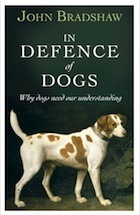A Música & os Animais
(...)...
Minhas Senhoras,...
Minhas Meninas,...
Meus Senhores,...
- Michelet disse, modestamente, que os animais são os nossos animais inferiores;... o que equivale a dizer que o homem é o irmão superior dos animais...Não dispomos da opinião dos animais sobre esta questão...
 ... O que sabemos sobre eles é que são bons cidadãos da natureza;... que têm direitos e deveres;...e que a sua inteligência é considerável...
... O que sabemos sobre eles é que são bons cidadãos da natureza;... que têm direitos e deveres;...e que a sua inteligência é considerável......Alguns são designados »domésticos »...
Porquê?...Não sei...
...Falou-se muito da inteligência dos animais - são, além dos mais, polidos...
(...)
...Os pintores e escultores representam muitas vezes os animais. Neste caso os artistas são apelidados de «animalistas»...
Os animais, esses, parecem ignorar as artes plásticas...Não restam duvidas...
...
De fato não possuímos nenhuma pintura, nenhuma escultura feitas por um animal...
o gosto deles não está virado para qualquer destas artes...
Em contrapartida, a arquitectura e a musica atraíram-nos. O coelho constrói tocas (terriers) para ele e para o Fox do mesmo nome:...
- O pássaro faz um ninho, maravilha de arte&industria, para ali viver com a família...
...
... poderíamos continuar estas citações até ao infinito ...
... Mas chega quanto á arquitectura...
(...) passemos á musica
... Não podemos duvidar de que os animais amem & pratiquem a música...
...isso é evidente, mas parece que os seu sistema musical difere do nosso...
... é outra escola...
é preciso ouvi-los relinchar, miar, zurrar, assobiar, grasnar,balir,cacarejar,arrulhar, ladrar, urrar,rugir,ronronar,palrar,ganir,...para termos uma ideia da sua arte sonora.
... o reportório e o modo como o utilizam transmite se de pai para filho - por simples imitação.
Muito dotado o aluno não tarda a igualar o mestre...
... o reportório e o modo como o utilizam transmite se de pai para filho - por simples imitação.
Muito dotado o aluno não tarda a igualar o mestre...
VI
Desconhecemos as suas obras didácticas...
... Se calhar não as têm...
...O aspeto físico de alguns tipos indica uma aptidão especial..
...o bico, nos pássaros,aproxima se do clarinete...da flauta...
...
em contrapartida, outros tem uma estrutura geral que os impede de sonharem sequer em lançar se numa carreira artística...
Os pobres animais nem sequer pensam nisso...
(...)
VIII
è tudo qto tenho a dizer-vos
...
...Cumpre me Agradecer a vossa benevolente atenção...
Faco-o com prazer...
In Escritos em forma de Grafonola de Erik Satie!






